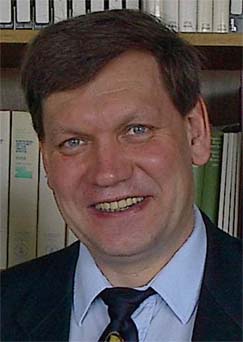Aging News
first issue
Greetings,
We are pleased to announce the launch of a new "Aging & Longevity Research News" newsletter. Please see below the first experimental issue of this newsletter, which contains the list of news with links to original publications.
If you are interested to see the most recent news everyday, then go directly to this continuously updated (but not edited) news list generated by computer at:
http://longevity-science.org/Aging-News.php
Alternatively bookmark and check this Longevity Science Blog periodically for new edited releases of "Aging & Longevity Research News" at:
http://longevity-science.blogspot.com/
Please feel free to post your comments below, so that we could improve further issues of the "Aging & Longevity Research News" newsletter!
Thank you!
----------------------------------------------------------------
Aging & Longevity Research News
• No Proof That Growth Hormone Therapy Makes You Live Longer, Study Finds
Purveyors of anti-aging elixirs tout human growth hormone as a remedy for all things sagging -- from skin to libidos -- and claim it can even prevent or reverse aging. But researchers at the Stanford University School of Medicine say there's no evidence to suggest that this purported fountain of youth has any more effect than a trickle of tap water when it comes to fending off Father Time.
• Does It Make SENS?
Read a new scientific discussion regarding SENS: the"Strategies for Engineered Negligible Senescence" scientific initiative, and see the most recent comments made by:
(1). Professor Stephen R. Spindler at the Department of Biochemistry, University of California, Riverside, USA, and
(2). Professor Ruth Itzhaki, Faculty of Life Sciences, University of Manchester, United Kingdom.
• Older Moms, Healthy Families
At Any Age, Moms Still Have Much to Offer Their Kids.
• Want to Live to be 100? First-born Have Better Chance
Firstborn children are 1.7 times as likely as their siblings to live to be 100. An even stronger predictor of longevity is how young their mother was when they were born. Those whose mothers were younger than 25 were twice as likely to survive beyond a century.
• World's Oldest Mom Lied To Get Treatment
A 67-year-old woman who is believed to be the world's oldest new mother told a British newspaper she lied to a U.S. fertility clinic " saying she was 55 " to get treatment. The woman was 66 when she gave birth to twin boys in December.
• Vital Signs: Hazards: Antidepressant Linked to Fractures in Older People
Daily use of a common class of antidepressant may double the risk of fracture in people older than 50, a study reports.
• Large families linked to reduced parents' lifespan
Parents of large families face a modest increase in the risk of death compared to those with only a few children, a study of couples married in the 1800s suggests.
• Mammograms Drop In Women 40 And Older
The Centers for Disease Control reports a drop in the percentage of U.S. women 40 and older getting mammograms to screen for breast cancer every one or two years.
• Parkinson's, MS more common than thought
Multiple sclerosis, Parkinson's disease and other neurological diseases may be far more common than most people had believed, according to the latest estimates.
• Why some women can't control their bladders
A range of health and lifestyle factors can predispose middle-aged women to bladder-control problems, though the causes tend to shift with age, according to a new study.
• Link Found Between Muscle Damage During Childbirth, Condition Causing Fallen Bladder, Uterus
New research from the University of Michigan Health System establishes one of the strongest connections yet discovered between muscle damage that can occur during vaginal deliveries and pelvic organ prolapse, a condition that causes the uterus, bladder or bowel to fall down later in a woman's life
• Exercise Has No Effect On Risk Of Knee Osteoarthritis, Study Finds
A new study examined the effects of physical activity over a long period in older adults, many of whom were overweight, and found that exercise neither protects against nor increases the risk of knee OA.
• Molecular Motors And Brakes Work Together In Cells
Researchers at the University of Pennsylvania School of Medicine have discovered that microtubules -- components responsible for shape, movement, and replication within cells -- use proteins that act as molecular motors and brakes to organize into their correct structure. If microtubules are not formed properly such basic functions as cell division and transport can go wrong, which may have implications in such disease processes as cancer and dementia.
• Could Some Sun Be Good for Your Skin?
Early research conducted at Stanford University suggests that sunlight in small doses may protect skin from damage. It triggers the synthesis of vitamin D, which may help protect against cancer and other disorders.
New Books:
• Biological Aging:
Methods And Protocols
(Methods in Molecular Biology (Clifton, N.J.), V. 371.)
• Aging Nation:
The Economics and Politics of Growing Older in America
by James H. Schulz, Robert H. Binstock
• New Dynamics in Old Age:
Individual, Environmental And Societal Perspectives
(Society and Aging Series)
by Hans-Werner, Ph.D. Wahl (Editor), Clemens Tesch-roemer (Editor), Andreas Hoff (Editor)
• The Evolution of Death:
Why We Are Living Longer
(Suny Series in Philosophy and Biology)
by Stanley Shostak
• Biology, Sociology, Geology by Computational Physicists,
Volume 1 (Monograph Series on Nonlinear Science and Complexity)
by Dietrich Stauffer et al.
This book includes discussion of biological aging, human mortality and longevity.
• What Books People Read?
Somewhat disturbing list of best-selling books on aging and longevity.
• Wish to Announce Your New Book or Book Chapter?
Continuously updated list of new interesting books on aging and longevity. You can announce there your new book or book chapter (it's free!).
Future Scientific Meetings:
• Workshop on Human Longevity
Ongoing Plans for a Scientific Workshop on Human Longevity in Malasiya, November, 2007
Questions? Comments?
Post them below!
Labels: ageing, aging, longevity, news, newsletter


